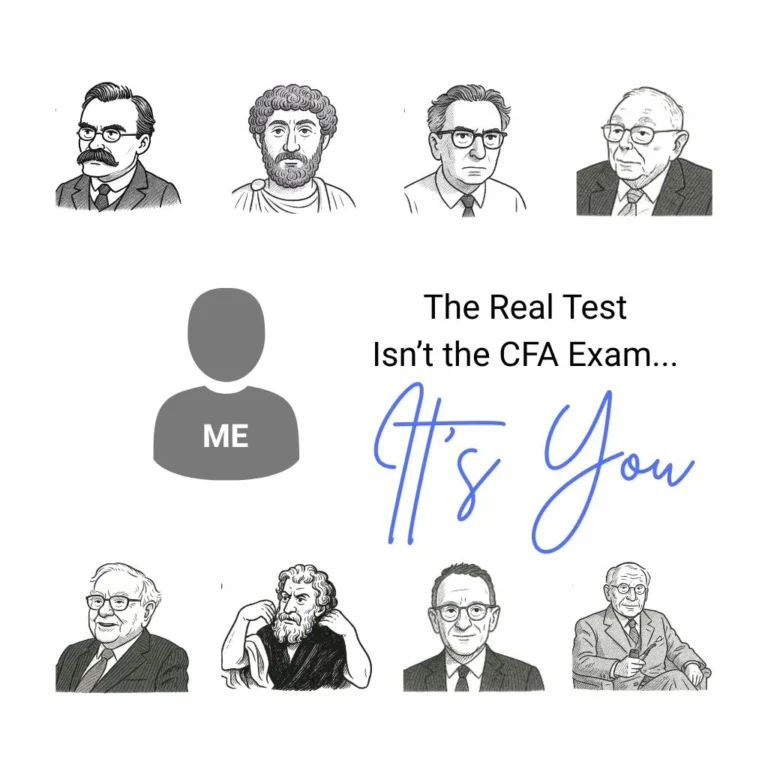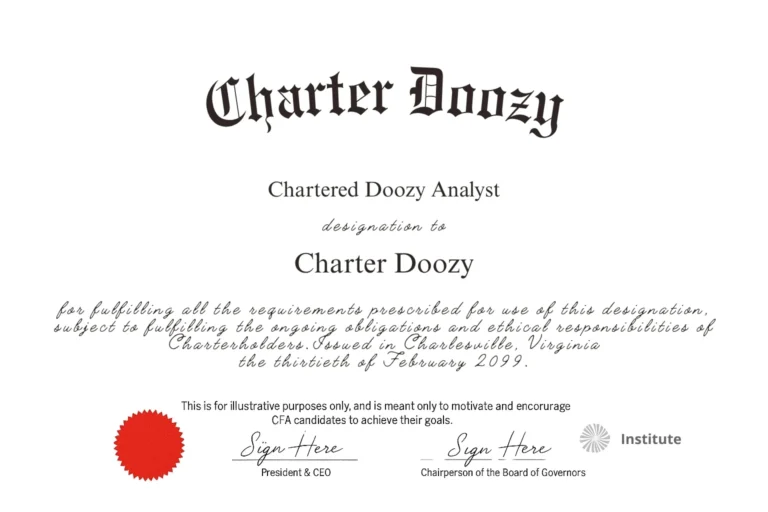Late nights under a desk lamp, weekends sacrificed to practice problems, and an ever-growing stack of flashcards – the CFA exam is often described as one of the most grueling tests in finance.
With pass rates typically hovering well below 50% for each level, the challenge is undeniably real. Yet, beyond the thick curriculum books and technical formulas lies a deeper trial.
Every CFA candidate eventually realizes that the hardest exam is not the three levels of multiple-choice and essays – it’s the continuous examination of one’s own character.
The process demands resilience when facing failure, discipline when motivation wanes, and clarity of purpose when the question “Why am I doing this?” echoes in one’s mind.
In the end, the letters CFA on a business card represent mastery of finance, but perhaps more importantly, the culmination of an inner journey.
As we explore this journey, we’ll draw on the wisdom of philosophers like Nietzsche and Marcus Aurelius, psychologists like Carl Jung and Viktor Frankl, and renowned investors like Warren Buffett and Howard Marks.
Their insights will illuminate how the CFA ordeal is a test of you – your will, your mindset, and your values – as much as it is a test of financial acumen.
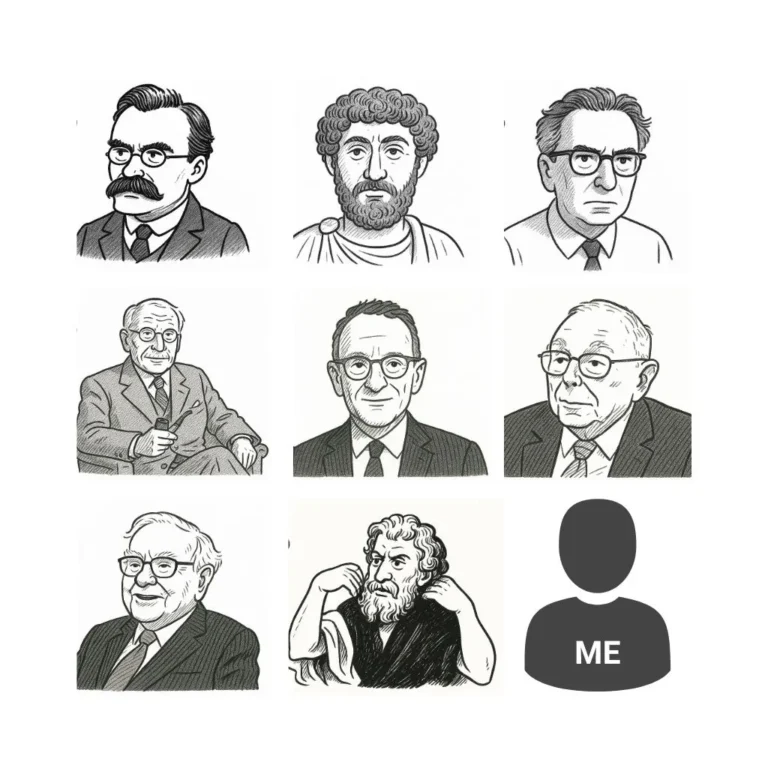
The CFA Journey: A Test of Character, Not Just Knowledge
The Outer Exam vs. the Inner Exam: It’s easy to view the CFA exams as a straightforward test of finance and investment knowledge – ethics, accounting, valuation, and the like.
Certainly, you must conquer a vast syllabus.
But beneath the surface, the process deliberately pushes your personal limits.
Consider that many extremely intelligent candidates falter not due to lack of knowledge, but because of psychological pressures or loss of drive.
The true “exam” is happening every day during your preparation… when you choose to hit the books after a tiring workday, when you persist after scoring poorly on a mock, and when you maintain discipline even if shortcuts tempt you.
Each decision shapes your character. In this way, the CFA program is less a test of what you know and more a test of who you are.
Philosophical Perspective – The “Why” Behind the “How”
Friedrich Nietzsche famously wrote, “He who has a why to live can bear almost any how”.
In other words, if you have a strong enough reason or purpose, you can endure almost any challenge.
Preparing for the CFA is a formidable “how” – long hours, dense material, uncertainty of outcome.
To bear it, you must identify your “why.”
Are you pursuing the charter to advance your career, to prove something to yourself, to gain knowledge, to make your mom proud, or to fulfill a passion for finance?
That purpose will be your anchor when the seas get rough.
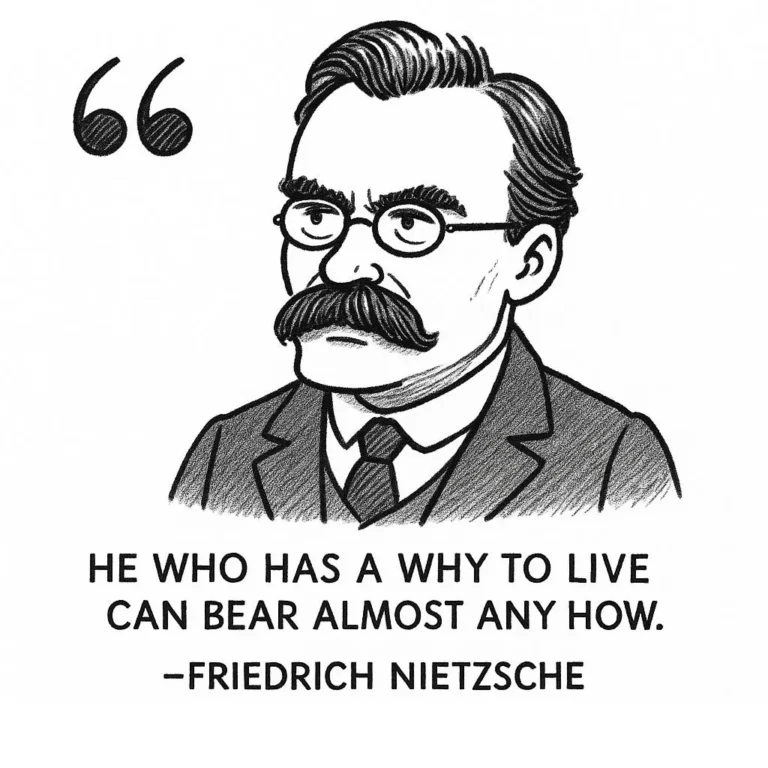
Viktor Frankl, the psychologist who survived concentration camps and founded logotherapy, often cited Nietzsche’s insight on purpose, observing from his own ordeal that meaning sustains us in the deepest suffering.
While studying the CFA curriculum obviously pales in comparison to Frankl’s trials, the principle still applies: a sense of purpose can carry you through intense difficulty.
When you remember why you started this journey, it becomes easier to push through the tedious or stressful moments.
We will revisit this idea of purpose later, but keep in mind that understanding yourself – your motives, your values – is the first step in realizing that the real test is internal.
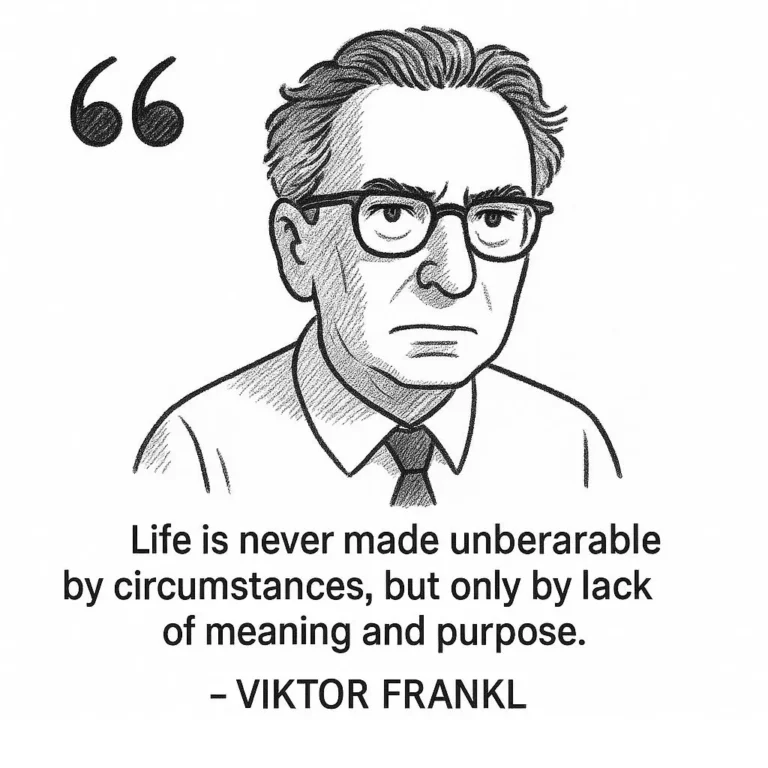
Resilience: Transforming Failure into Strength
Every CFA candidate dreads failure.
It’s a blow to the ego and a test of will.
However, failure itself can be a profound teacher and character-builder.
As Nietzsche also observed, “What does not kill me makes me stronger.”
History and research suggest he was onto something real.
A 2019 Northwestern University study established a causal link between early-career failure and future success, essentially proving Nietzsche’s adage in a modern context.
The researchers found that young scientists who narrowly missed out on early grants often went on to outperform those who had early wins – but only if they persevered and kept trying.
In the authors’ words, those who stuck it out after an initial failure “performed much better in the long term, suggesting that if it doesn’t kill you, it really does make you stronger”.
The parallel to the CFA journey is clear: failing an exam can demoralize you, but for those who use it as fuel to improve, it often breeds a deeper strength and preparedness the next time around.
From Setback to Comeback
Practically speaking, resilience in the CFA process means reframing setbacks as opportunities.
If you fail Level II after passing Level I for example (like yours truly…), it’s not a permanent reflection of your abilities – it’s feedback on where to grow.
Many candidates who stumble come back to pass on subsequent attempts with a more effective study strategy and a tougher mindset.
This bounce-back ability is sometimes termed “grit” – the passion and perseverance to pursue long-term goals despite obstacles.
Psychologist Angela Duckworth, who studied successful people in challenging endeavors, found that grit often counts more than sheer talent.
Each time you overcome a difficult chapter or recover from a poor mock exam score, you are flexing and strengthening your “resilience muscle.”
Over time, the very experience of struggle builds confidence that you can handle whatever comes.
In essence, the CFA journey inoculates you against future hardships – deadlines at work, high-pressure decisions, other exams – because you have proven to yourself that defeat can be temporary and that you can rise stronger.
Stoic Wisdom on Obstacles
Two thousand years ago, the Stoic philosopher-king Marcus Aurelius wrote in his Meditations about turning obstacles upside down.
“The impediment to action advances action. What stands in the way becomes the way.” he noted during a time of war and uncertainty.
This insight is exceptionally relevant to CFA candidates.
The very things that make the CFA difficult – the vast curriculum, tricky questions, limited time – can become the means by which you grow.
Every obstacle is an opportunity in disguise: Dense technical topics train you to learn complex material quickly. Rigorous time pressure trains you to think and act under stress.
Marcus Aurelius’ idea that the obstacle is the way encourages us to embrace challenges rather than dread them. Instead of saying “I failed a mock, this is terrible,” the resilient candidate says, “I failed – this shows me my weak spots – overcoming them will make me more capable.”
By viewing hardships as the path to progress, you shift from a victim mindset to a growth mindset.
Each setback becomes a stepping stone.
This approach not only helps you pass the exam eventually, but it also transforms you into a stronger individual – one who doesn’t fear adversity but actually uses it.
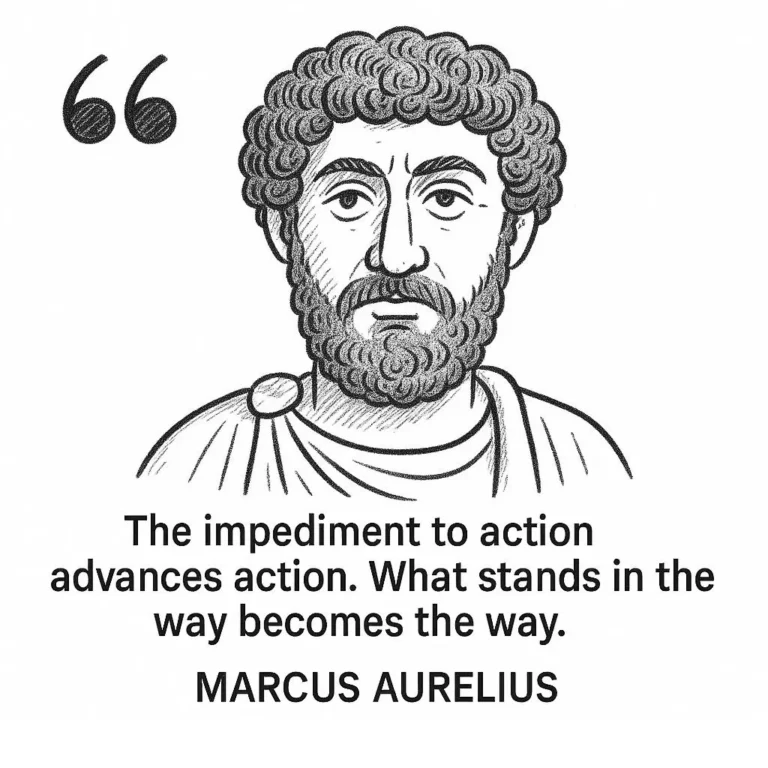
Consider a concrete example.
Imagine two candidates, Alice and Bob, who both fail the Level I exam on their first try.
Alice is devastated. She begins to question her intelligence and even whether finance is right for her.
Feeling ashamed, she considers giving up.
Bob, on the other hand, certainly feels disappointed too – but after the initial sting, he decides to treat this failure as a learning experience.
He analyzes his score report to pinpoint weak areas, reads forums or talks to Charterholders about better strategies, and comes back with a new study plan and renewed determination.
Alice sees failure as a verdict on her ability.
Bob sees it as a challenge to be overcome.
A year later, Bob passes Level I with flying colors, and even Alice (if she hasn’t quit) notices that Bob seems unusually confident and composed under exam pressure.
Bob’s resilience has not only helped him pass – it’s visibly changed his demeanor.
This hypothetical illustrates that the real test each time wasn’t whether Alice or Bob could memorize formulas – it was whether they could overcome themselves and their fear of failure.
Those who do, like Bob, carry that resiliency forward into the next levels and into their careers.
In sum, the CFA program will test your resilience at every turn.
You might have to sacrifice social events or deal with unsupportive people… you might score horribly on a topic area that you thought you knew… you might even fail an exam that you spent six months preparing for.
But these moments are the crossroads where you either quit or push forward with greater resolve.
The candidates who treat failure as feedback, who adapt and persist, demonstrate a philosophical truth in real life – that adversity can strengthen rather than weaken us.
Passing the CFA exam, then, is often a byproduct of perseverance, and the perseverance you cultivate is a victory far more valuable and enduring than a test score.
Discipline: The Daily Trial of Self-Mastery
If resilience is tested in moments of failure, discipline is tested every single day.
Discipline is the quiet, uncelebrated force that gets you to open the curriculum when Netflix, sleep, or a night out with friends beckon.
It’s what keeps you on track long after the initial excitement of registering has faded.
The CFA Institute recommends hundreds of hours of study per level, which translates to many evenings and weekends where you must choose study over leisure.
This daily grind can actually be harder than the exam day itself, because it’s a protracted examination of your ability to govern yourself.
As one proverb goes, “The journey of a thousand miles begins with a single step” – and discipline is choosing to take that step each day, consistently, without immediate reward.
Morning with Marcus Aurelius – A Lesson in Doing What Must Be Done
Even a Roman emperor needed a pep talk to get out of bed on tough mornings.
Marcus Aurelius wrote a famous passage addressing his own reluctance to leave the warmth of his covers at dawn.
“At dawn, when you have trouble getting out of bed, tell yourself: I have to go to work – as a human being. What do I have to complain of, if I’m going to do what I was born for… or is this what I was created for? To huddle under the blankets and stay warm?”.
This self-exhortation is strikingly applicable to CFA candidates facing predawn alarm clocks to squeeze in study time.
Marcus challenges himself – and us – to remember our purpose (“what I was born for”) and not to pamper the body at the expense of fulfilling our duties.
For a candidate, studying is your current duty, a step toward your larger goals.
The notion of being “born for” something might sound lofty, but in simple terms, if you have chosen the CFA path, then part of your purpose right now is to tackle that commitment honorably.
The Stoics believed in doing the right thing regardless of feelings.
In the modern context, that translates to studying even when you don’t feel like studying.
It means mastering your impulses (like the impulse to hit snooze or scroll through social media) and replacing them with intentional actions aligned with your goals.
Habits and the Power of Routine
Psychology backs up the Stoic view with research on habits – once you establish a routine, it becomes easier to follow through regardless of temporary motivation.
Many successful candidates become almost ritualistic: for example, hitting the library for two hours every evening without fail, or doing 30 practice questions with their morning coffee each day.
By turning studying into a non-negotiable routine, you reduce the mental friction.
You no longer ask “Will I study tonight or not?” – it’s a given, just like brushing your teeth.
This consistency not only helps cover the immense material, but it forges discipline as a character trait.
You learn to prioritize long-term benefits over short-term pleasures, a skill that defines maturity and self-control.
In essence, you are training your willpower.
Just as a muscle grows stronger with regular exercise, your capacity for self-discipline grows each time you stick to your study plan despite distractions.
Over months, you might surprise yourself – tasks that once seemed hard to start become automatic.
The person you were when you began (perhaps prone to procrastination or easily demotivated) evolves into someone with a stronger work ethic and greater mental toughness.
Buffett on Temperament Over IQ
In the world of investing, which CFA Charterholders aspire to excel in, the importance of temperament and discipline is repeatedly emphasized by luminaries.
Warren Buffett, famed for his investment prowess, insists that raw intelligence is not the deciding factor for success.
“Investing is not a game where the guy with the 160 IQ beats the guy with the 130 IQ… Once you have ordinary intelligence, what you need is the temperament to control the urges that get other people into trouble in investing.”.
Substitute “investing” with “exam preparation” and the wisdom still holds.
You don’t need to be a genius to pass the CFA; many candidates who pass are of completely ordinary intellect.
But you do need the right temperament: the patience to study consistently, the discipline to resist distractions, and the emotional control to not panic under exam pressure.
Buffett’s point about controlling urges applies to a candidate’s urge to procrastinate or to give up after a bad study session – mastering those impulses is far more crucial than having an extra 30 IQ points.
In fact, some very smart people struggle with CFA exams because they’ve coasted on talent and never developed strong study habits or stress management; whereas others of moderate intelligence excel by methodically grinding through the material and staying cool-headed.
It’s a tortoise-and-hare situation, where steadiness wins.
Hearing this from Buffett underscores that the personal qualities you hone for exam success (like discipline and emotional control) are the same qualities that will serve you in the finance profession.
You are effectively training to have the temperament of a great investor – someone who can stick to a sound strategy, avoid irrational behavior, and do what is necessary for long-term results.
These traits are part of your character, not your intellect, and they are tested day in and day out in the CFA journey.
Discipline as Self-Mastery
There’s a saying: “No man is free who is not master of himself.”
While not one of our named thinkers (this quote is often attributed to Epictetus), it resonates with all of them.
The CFA path is an exercise in self-mastery.
You begin to notice your mind’s tricks – how it seeks comfort and excuses – and you learn to override them with reason and will.
Carl Jung might frame it as integrating your inner drives: the part of you that wants to slack off must be reined in by the part of you that aspires to achieve.
Through disciplined practice, you gradually align your actions with your higher goals rather than momentary moods.
This alignment is a hallmark of character. It means you can depend on yourself to do what’s necessary, which boosts your confidence and self-respect.
When exam day arrives, you carry not only your knowledge but also this earned trust in your own discipline.
And even after the exams, in your career, this self-mastery will show up when meeting deadlines, pursuing professional development, or managing your personal finances.
Thus, the real victory of discipline is not just answering exam questions correctly, but becoming the kind of person who can set a course and steadily follow it.
That is a rare and valuable trait – one that the CFA process, for all its toughness, can help instill if you embrace the challenge fully.
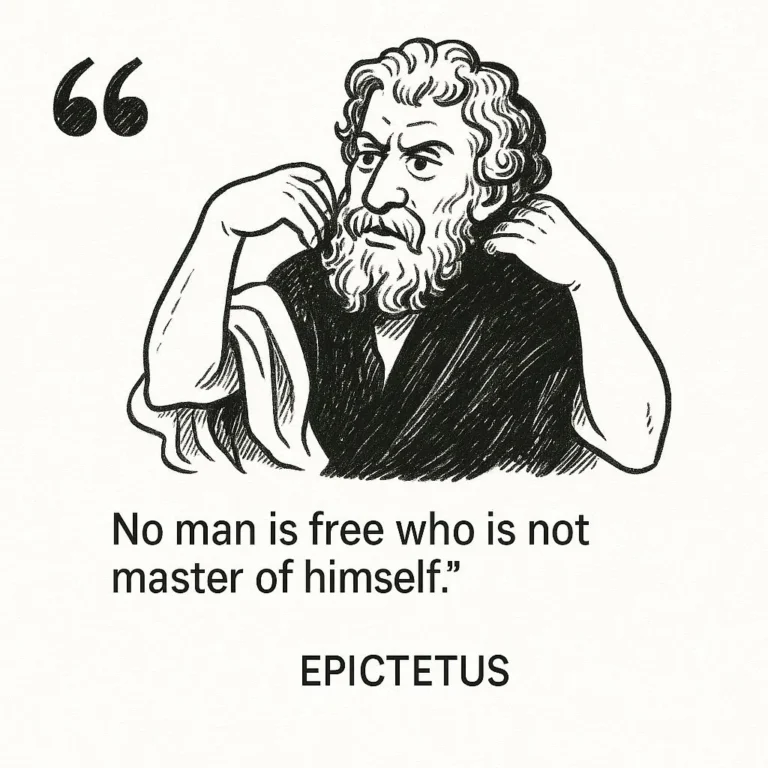
Purpose and Meaning: Finding Your “Why”
Amid the notes, videos, and formulas, it’s easy to lose sight of why you embarked on the CFA journey in the first place.
Yet, as we touched on earlier, a clear sense of purpose is your psychological lifeline through the toughest moments.
When you have a compelling reason, you tap into intrinsic motivation – a drive from within that is far more sustainable than external rewards like prestige or salary.
This section invites you to reconnect with or redefine the meaning behind your CFA pursuit, and to see how that sense of meaning profoundly influences your resilience and dedication.
Frankl’s Lesson: Purpose in Suffering
Viktor Frankl, in surviving the horrors of the Holocaust, observed that those who survived often had rich inner lives filled with meaning, whether it was thoughts of loved ones or dreams of work they still needed to do.
He wrote, “Life is never made unbearable by circumstances, but only by lack of meaning and purpose.”.
Translate this to a much smaller scale – the grind of CFA prep can feel unbearable on some days (circumstance: you’re exhausted, the material is dry, you’ve missed a passing score by 1% before, etc.).
Frankl’s point is that these circumstances themselves aren’t what break us – it’s the sense of meaninglessness that breaks us.
If a candidate has no clear reason for doing CFA other than a vague notion that “it might be good to have,” then every hardship feels pointless and thus heavy.
Conversely, if a candidate deeply believes, for example, “I want to do this because I aspire to build a career that improves financial advice for others,” or “because earning this charter will prove to myself that I can overcome any challenge,” that meaning will lighten the load.
Purpose transforms drudgery into a mission.
Instead of “I have to study,” it becomes “I am studying because it serves this greater goal I care about.”
We often borrow Nietzsche’s insight about the “why” and “how” in motivational contexts because it rings true: when slogging through, say, yet another reading on pension accounting, it helps immensely to remember why you need this knowledge – perhaps to manage clients’ retirement portfolios responsibly one day, or to pass this level and move closer to your dream role.
Even a personal why like “to become a more learned and disciplined version of myself” is powerful.
In fact, that might be the ultimate why – personal growth – which aligns perfectly with the thesis that the real test is you.
Your “why” might evolve over time.
Maybe you started for the career boost, but along the way you discover a genuine love for finance theory, or you find that inspiring others (family, colleagues) by your example becomes a reason.
Whatever your why, articulate it and internalize it.
Write it down.
Reflect on it during tough days.
It will give meaning to the mundane and painful parts of the journey, making them more bearablw.
Avoiding the Void of Extrinsic Motivation
Many candidates begin the CFA program due to external motivations – a better job, higher salary, prestige of the CFA Charter.
These can be effective carrots, but research in psychology suggests extrinsic motivators have limits.
When the work gets really hard, external rewards often aren’t enough to keep us going (or we rationalize that we can live without that reward).
This is why tapping into intrinsic motivation – doing it for personal reasons, for passion, interest, or personal meaning – is crucial.
Try to connect some aspect of the material or the achievement to something you find inherently fulfilling.
Perhaps you love how finance can help solve real-world problems and the studying, though tedious, is slowly turning you into a problem-solver.
Or you see the pursuit as part of your identity – “I am someone who never stops learning and challenging myself.”
That identity can be a driving purpose too.
Carl Jung might say that finding purpose is part of the individuation process – becoming fully yourself.
He wrote in a 1916 letter about the importance of looking inward for clarity of direction: “Your vision will become clear only when you can look into your own heart… Who looks outside, dreams; who looks inside, awakes.”.
This beautifully captures the idea that you must introspect (look inside your heart) to awaken to what truly matters to you.
If your pursuit of the CFA charter is only based on external expectations (looking outside), it may be a fragile dream – but if it’s rooted in your own heart’s desire (looking inside), it becomes an awakened purpose.
Take time to reflect on how your values align with this endeavor.
Perhaps integrity is a core value – then mastering the CFA ethics material isn’t just to pass an exam, it’s to become a finance professional who upholds the highest standards (a meaningful goal).
By aligning the CFA studies with your personal values and mission, you turn a challenging exam into a purposeful journey.
Meaning Makes You Unstoppable
When purpose is in place, something magical happens: challenges that would normally deter you become almost affirming.
You develop what Frankl called the “will to meaning,” a drive that can handle suffering because it sees a why behind it.
For example, a candidate firmly convinced that earning the CFA will enable them to better provide for their family or positively impact their community will find energy to study on nights when they’re bone-tired – an almost supra-human strength born from conviction.
In contrast, a candidate without a clear sense of purpose might have plenty of energy on good days, but the moment it gets tough, the thought “Why am I even doing this?” saps their will.
Purpose is a source of resilience and discipline in itself.
It’s like a guiding star – when you’re lost in the weeds of technical details or feeling low, reconnecting to your why can recalibrate you and renew your determination.
One might also find purpose in the journey itself.
It’s not all about the destination (the charter); it’s also about who you become along the way, as we’ve been discussing.
Maybe your why is simply “to test my limits and see what I’m made of.” That is a valid and profound motivation – a sort of personal quest.
Then each study session and each exam is an arena in which you prove something to yourself.
This frames the whole experience as inherently meaningful, because every day you are accomplishing that purpose by showing up and fighting the good fight.
In summary, knowing your purpose for pursuing the CFA charter is not a luxury – it’s a necessity.
It’s the fuel that keeps the fire burning when the initial spark fades.
Marcus Aurelius wrote, “Waste no more time arguing about what a good man should be.
Be one.” Similarly, waste no time once you’ve chosen this path – embrace it with conviction.
If you haven’t yet clarified your reasons, take a step back and do so.
If you have, remind yourself of them often.
With a strong enough why, you can bear almost any how, and no matter what the exam throws at you, you will find a way through.
Self-Reflection and Personal Growth: Know Thyself to Grow Thyself
One of the most underappreciated aspects of the CFA journey is how much you learn about yourself.
Preparing for these exams holds up a mirror – it reveals how you handle stress, how you deal with uncertainty, how you respond to strict goals, and what your true priorities are.
This self-knowledge is a powerful asset, cultivated through continuous reflection and adjustment.
Many candidates emerge on the other side not just with letters after their name, but with a deeper understanding of their own psyche and capabilities.
This is where psychology and even spirituality meet the grind of exam prep: the notion that intense efforts towards a goal can become a path of self-discovery.
Jungian Insight – Confronting Your Inner Self
Carl Jung, the eminent psychologist, believed that individuals must confront their inner world – including their fears, desires, and even the “shadow” (the parts of ourselves we deny) – to become whole.
While studying for an exam might not seem like an exercise in therapy, consider what you confront during this journey: fear of failure, perhaps tendencies to procrastinate (a form of self-sabotage), anxiety under time pressure, or even overconfidence that might need humbling.
The process forces these issues to the surface.
For example, you might realize during timed practice exams that you panic and blank out – a cue to develop techniques for anxiety management and to understand why you react that way.
Or you notice that you always skip certain types of problems – perhaps revealing an unconscious avoidance of topics you find intimidating, which you can then consciously overcome.
Each realization is a step toward greater self-awareness.
Jung famously said, “Who looks outside, dreams; who looks inside, awakes.”. In the context of the CFA, looking “inside” might mean observing your own study habits and emotional responses with honesty.
Instead of just dreaming externally about passing or what life will be like as a Charterholder, you turn inward and ask:
How am I handling this process?
What are my strengths and weaknesses?
This reflection is akin to a personal SWOT analysis – except the stakes are your growth, not a business outcome.
Character Under Construction
Through self-reflection, you start to intentionally shape your character.
Perhaps you identify that procrastination is a major issue for you – you then experiment with techniques to combat it (like setting earlier personal deadlines, or creating accountability with a study group).
Over time, you find what works and notice that you’re becoming more proactive not just in studying, but in other areas of life too.
Or maybe you recognize that you tend to get negative and self-critical when scoring low on practice questions.
Noting this pattern, you might practice reframing your self-talk: instead of “I’m not good enough,” you tell yourself, “This is an opportunity to improve.”
That shift might echo principles of cognitive-behavioral psychology, turning irrational thoughts into constructive ones.
The point is, the journey offers constant feedback about your mental and emotional habits, and if you pay attention, you can iteratively improve not just your knowledge but your mindset.
Over the course of preparing for three levels, that can lead to significant personal transformation.
Many charterholders look back and say that they barely recognize the person they were when they started – not just in terms of knowledge, but in maturity and self-confidence.
The CFA Journey as a Microcosm of Life
There’s a philosophical view, echoed by thinkers like the ancient Greeks, that to know oneself is the beginning of wisdom (gnōthi seauton – “know thyself” – was inscribed at the Temple of Apollo at Delphi).
The CFA journey, in a controlled way, encapsulates many of life’s general challenges: setting a big goal, dealing with pressure, handling success and failure, balancing competing priorities (work, family, study), and making sacrifices for a future payoff.
How you navigate these facets during CFA prep often mirrors how you approach life in general.
If you learn to navigate them better in this microcosm, you’ll likely handle life’s other challenges better too.
For instance, time management – a skill you refine by juggling a full-time job and 15 hours of weekly study – is something that will help your overall productivity and stress levels beyond the exam.
Or take emotional regulation.
By learning how to calm your nerves before the test (maybe through mindfulness techniques or a pre-exam routine), you’ve added a tool that can help in any high-stakes situation, be it a job interview or speaking in public.
Each candidate’s specific growth areas will differ, but the key is that the exam journey provides a training ground for personal development.
Metamorphosis: The Person You Become
It’s worth reflecting on concrete personal changes you might experience:
Confidence: Not arrogance, but a quiet confidence born from having met a significant challenge. After passing Level III, when you finally clear the entire gauntlet, you carry a sense of earned confidence – “If I could get through that, I can get through anything.” This is confidence in your ability to learn, to persist, and to perform under pressure.
Humility: Interestingly, the process can also humble you. No matter how smart you are, there will be topics that stump you or moments where you have to admit you were unprepared. Embracing those moments teaches intellectual humility – recognizing the limits of your knowledge and the need to continuously learn. This humility is a hallmark of wise individuals (Socrates famously said that wisdom is knowing what you don’t know). By struggling and sometimes failing, you learn to respect the complexity of things and perhaps become less judgmental of others’ struggles.
Stress Management: Many candidates report that after the CFA exams, their threshold for stress is higher. The exam pressure desensitizes you a bit – what used to feel like a big deal (say a tough project deadline) might now feel manageable because, as one Charterholder joked, “At least I don’t have to memorize a hundred formulas on top of this!” You likely develop coping mechanisms: exercise, meditation, or simply perspective (knowing that panicking is rarely productive). This emotional resilience is part of your evolved character.
Integrity and Ethics: The CFA curriculum itself dedicates a significant portion to ethics. But beyond the textbook, you face real ethical choices: do I plagiarize someone’s notes or attempt to bring unauthorized materials into the exam? Hopefully not, as that could end your candidacy and tarnish your honor. The majority of candidates hold themselves to high ethical standards, reinforcing their own sense of integrity. You prove to yourself that you won’t compromise your principles for an edge. That’s character. In a sense, your integrity is tested too – will you uphold the CFA values of honesty and professionalism throughout your studies and exam conduct? Passing while playing by the rules is a double victory for character.
Lifelong Learning and Curiosity
Another possible outcome of this journey is that you kindle a genuine love of learning.
You might find that, after all the exams, you miss the structure of having material to conquer.
Many Charterholders go on to pursue other certifications or degrees, not because they need more accolades, but because they’ve become addicted to growth.
The best outcome of “the test is you” is realizing that life is an education.
The CFA may be done, but you’ll keep testing and improving yourself in new ways – perhaps learning a new language, developing a soft skill like public speaking, or aiming for a promotion that challenges you.
To tie in a final Jungian thought: Jung believed in the concept of individuation – fulfilling your personal potential and becoming the most whole version of yourself.
Challenging endeavors like the CFA exam, when approached with reflection, can catalyze individuation.
By the end, you’re not just someone who has passed a set of exams.
You are someone who knows more clearly who you are, what you can do, and what you want to become.
That self-knowledge is arguably the greatest reward, because it guides you far beyond the immediate context of the exam.
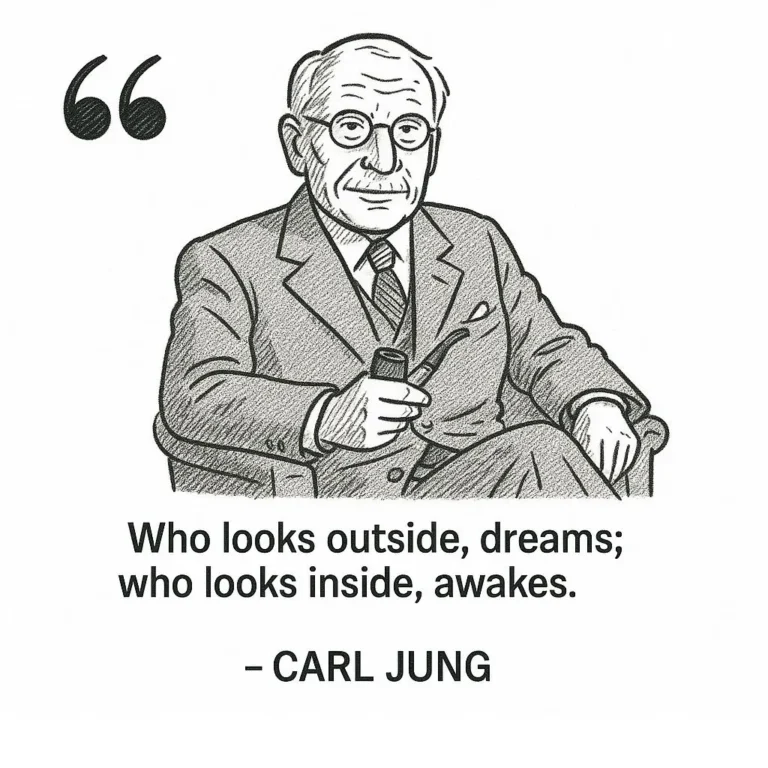
Wisdom from Financial Legends: Temperament and Philosophy in Action
To further cement the idea that the CFA journey is about testing and forging you, it’s illuminating to see that the very qualities we’ve discussed are echoed by some of the most respected figures in finance.
It’s not a coincidence that what makes a good CFA Charterholder (discipline, integrity, resilience, thoughtful strategy) also makes a good investor or leader.
Here, we bring in voices like Warren Buffett and Howard Marks to show the real-world value of the personal traits honed by the CFA process.
Warren Buffett – Character over Brains
We already visited one Buffett insight about temperament trumping IQ.
Buffett often emphasizes traits like patience, discipline, and emotional stability as keys to investing success.
Another Buffett quote that resonates: “Chains of habit are too light to be felt until they are too heavy to be broken.”
This is a warning about how our daily habits (or lack thereof) quietly shape our destiny – a concept CFA candidates learn first-hand.
If you habitually procrastinate, it eventually becomes a chain that’s hard to break.
If you habitually study, that too becomes a chain – but one that anchors you to success.
Buffett’s own daily habits (like voracious reading and sticking to principles no matter market euphoria) reflect a disciplined character.
For a candidate, building good study habits is parallel to an investor building good research habits.
Moreover, Buffett famously stays calm during market crashes, often doing nothing when others panic.
That calm resilience in chaos is exactly what you practice when training yourself not to freak out at a hard question or a poor mock exam result.
In Buffett’s worldview, the winners are those who have self-mastery and a clear long-term focus – precisely the virtues the CFA journey tests and refines.
When you next endure a tedious study session, remember that you’re in good company: the “Oracle of Omaha” built his fortune on boring, patient work and steadfast temperament, not on flash or brilliance alone.
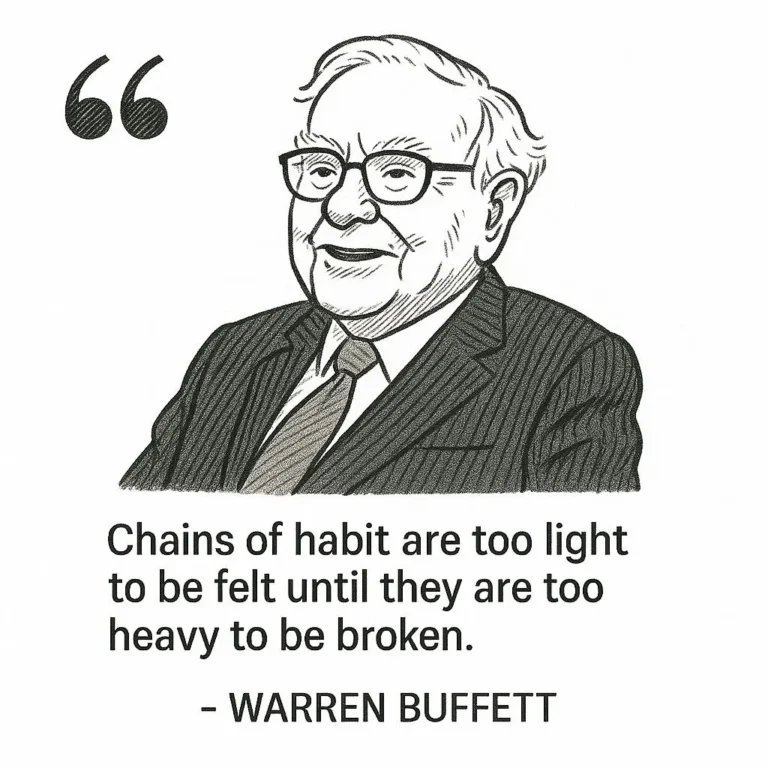
Howard Marks – Sticking to Principles Under Pressure
Howard Marks, a legendary investor and author, speaks frequently about the importance of process and emotional discipline.
One of his key pieces of advice is, “To be a successful investor, you have to have a philosophy and process you believe in and can stick to, even under pressure.”.
This quote could almost be advice to a Level III candidate writing their exam essays: have a strategy and stick to it under pressure.
For Marks, in investing this means having an approach (say, value investing) and not abandoning it in market manias or panics.
For you, it could mean having a study plan and exam strategy and not abandoning it when you feel stressed or when everyone else swears by some new shortcut or rumor.
The ability to maintain conviction in a sound plan when the heat is on is a character attribute.
It requires trust in yourself and the work you’ve put in.
Marks also highlights patience and contrarian thinking – the willingness to be steadfast when others waver.
A parallel in the CFA journey might be when peer candidates or coworkers question why you’re putting yourself through this ordeal (“Is it really worth it?”).
It takes a certain inner conviction to continue on your path despite external doubt or pressure.
If you stick to your principles (e.g., “I finish what I start” or “I know this will pay off in time and personal growth”), you are exemplifying the very steadfastness that people like Marks credit for their success in finance.
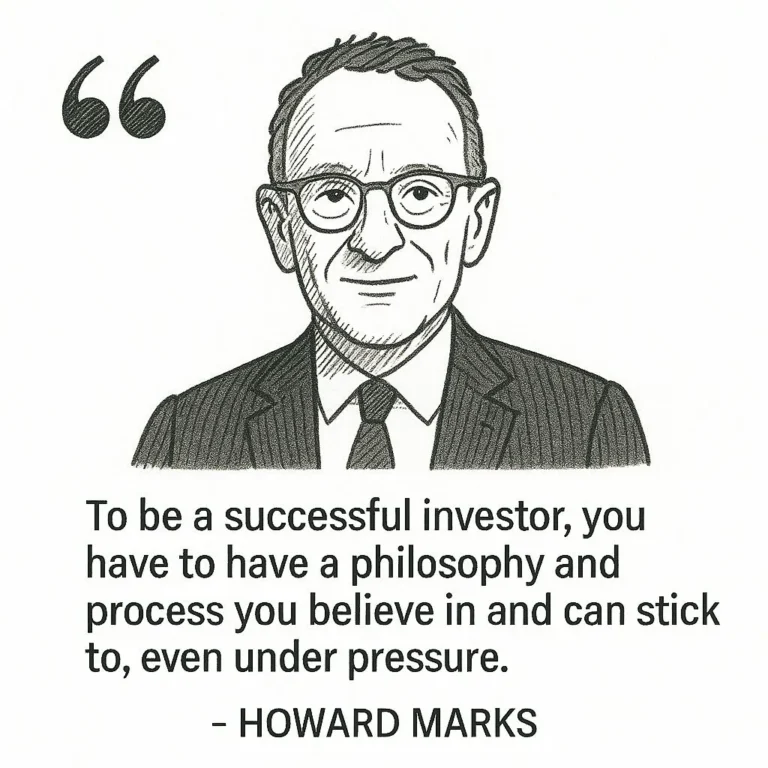
The Ethical Bedrock
Both Buffett and Marks, and indeed most revered figures in finance, constantly talk about integrity.
Buffett has said that when hiring people he looks for three qualities: integrity, intelligence, and energy – and, “If you don’t have the first, the other two will kill you.”
The CFA program’s emphasis on ethics is not an accident.
It’s trying to instill that first quality.
But beyond knowing the ethics code, living it is the true test.
Not cheating on the exam, being honest in claiming your study hours to your boss, helping fellow candidates in need – these are small ethical choices that form an ethical habit.
Marks once noted that capital markets work on trust, and trust is built by long-term honorable behavior.
As a candidate, you join a community that values trust (for instance, trust that CFA Charterholders are competent and ethical).
Upholding that trust in your conduct is part of the test of character.
It might be tempting, for example, to use a leaked exam question (if such a thing surfaced online) to gain an advantage.
Someone of true character would refuse, valuing honor above a score.
These are hypothetical situations, but they reveal and shape who you are.
And they align with what the giants of the industry preach: in the long run, your reputation and character are your greatest assets.
The exam ends in a day, but your integrity (or lack of it) follows you forever.
Connecting Inner Qualities to Career Success
By now it should be evident that the personal qualities forged by the CFA journey are the same cited by successful professionals.
If you cultivate resilience, discipline, purpose, and reflection to get through the exams, you will likely find those muscles ready to flex in your job and career.
When a steep market downturn comes early in your career, you’ll have the fortitude to navigate it.
When you need to absorb a new regulation or product knowledge, you know how to systematically learn complex material (because hey, you’ve done worse during CFA prep!).
When working on a project team, the discipline and ethics drilled into you will help you contribute reliably and honorably.
Perhaps most importantly, having confronted your own weaknesses during the CFA process, you might exhibit humility and a learning attitude at work – traits that invite mentorship and growth.
The letters “CFA” can open doors, yes, but it’s you walking through them that determines what happens next.
If you’ve grown through the process, you’ll walk in not just with a certificate, but with the confidence of someone who has been tempered by trial and is ready for whatever comes.
To quote another finance sage, Charlie Munger (Buffett’s partner), he said: “The big money is not in the buying and selling… but in the waiting.”
Replace “buying and selling” with “studying and exam-taking” – the big benefit is in the waiting, the patience, the process you endured.
It’s in who you became by waiting, persisting, and not giving up.
This wisdom from legends of investing reinforces a satisfying truth: the qualities you need to pass the CFA exam are the very qualities that lead to success in the real world.
Thus, focusing on developing those qualities is a two-for-one deal – you improve your chances at the exam and you build a foundation for your career and life.
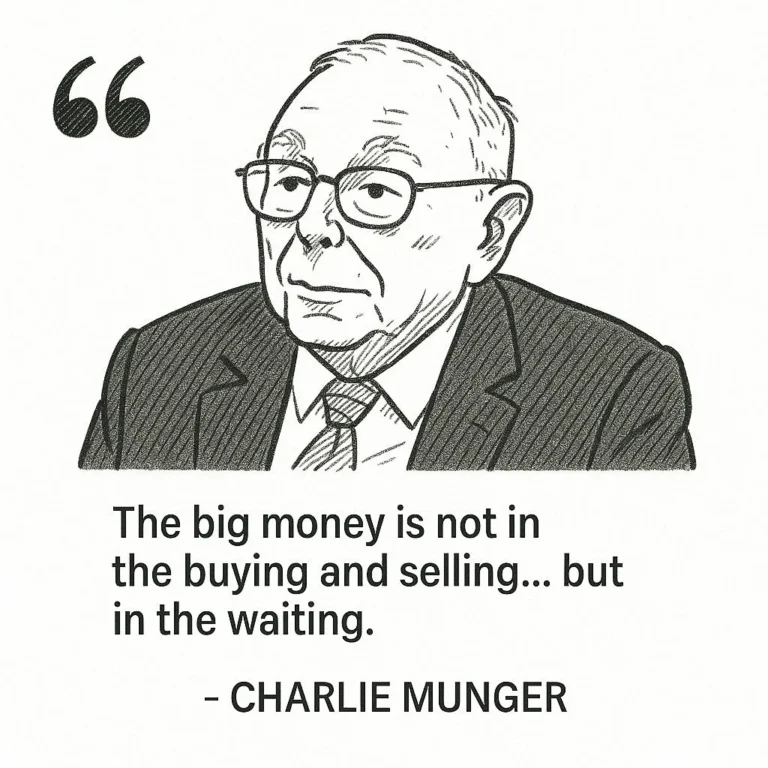
Practical Strategies for Personal Growth in CFA Preparation
We’ve covered a lot of philosophical and psychological ground.
Now, let’s distill some practical steps you can take as a CFA candidate to apply these insights to your own journey.
Think of this as a mini “toolkit” to ensure that as you study for the exam, you are also actively training and testing yourself in the ways that matter most:
Define Your Purpose in Writing: Take a moment to write down why you are pursuing the CFA charter. Be honest and dig deep (beyond surface reasons like money). Keep this statement somewhere visible. On tough days, read it to remind yourself of the bigger picture. If possible, tie your purpose to a value or vision that genuinely inspires you – this will be your intrinsic motivation engine.
Establish a Consistent Routine: Design a study schedule that becomes a habitual part of your day or week. For example, commit to a certain time slot each day as “study time.” Over weeks, protect this time fiercely. By making it non-negotiable, you reduce the mental effort of getting started daily. This builds discipline like a muscle. Consistency over intensity is key – better to study 2 hours daily than 14 hours only on weekends, as it trains you in daily self-control and keeps momentum.
Embrace a Stoic Morning (or Evening): Channel Marcus Aurelius each day when you’re tempted to procrastinate. Upon waking (or coming home from work), when you feel that resistance – remember his question: “Is this what I was created for? To huddle under the blankets (or scroll my phone) and stay warm?” Probably not! You were created to strive toward your goals. Develop a personal ritual to get started: it could be a motto you say to yourself, a cold shower to jolt you into action, or simply laying out your materials the night before so you have no excuses. This trains you to defeat the inner resistance every day, which is a huge victory for self-mastery.
Simulate Adversity in Practice: Don’t avoid difficult topics or skip mock exams for fear of low scores. Seek out challenges in your preparation – take timed practice tests, tackle your weakest topic head-on, study when you’re tired to mimic adverse conditions. These “deliberate hardships” make the real exam less intimidating and build resilience. When you hit roadblocks in study, practice the Stoic mindset: see them as “the way” to improvement. Keep a log of challenges faced and how you overcame them; review it before the exam to remind yourself of your resilience.
Reflect Regularly: Every week, take 10 minutes to journal about your CFA prep journey. Ask yourself: What went well? What was hard? What did I learn about myself? This could reveal patterns (e.g., “I study better in the morning” or “I get anxious when reviewing ethics”). Such insights allow you to adjust strategies and also mark progress in your personal growth. Over months, you’ll see how you’ve changed. Reflection converts experience into wisdom, ensuring you’re learning from learning, not just going through the motions.
Manage Stress and Maintain Balance: High performance is as much about rest and mental health as it is about hard work. Incorporate stress-management techniques into your routine: maybe a 10-minute meditation before study (to calm your mind), or exercise a few times a week to burn off anxiety and boost mood. When panic or negative thoughts strike, remember Viktor Frankl’s teaching that even when you can’t change a situation, you can choose your attitude. Practice reframing stress as excitement (“My heart’s pounding because this is important to me, and I’m ready for it”). Maintain at least one activity or relationship that nourishes you emotionally each week (family dinner, a hobby, spiritual practice) – this keeps you grounded and reminds you there is life outside the exam. A balanced candidate is a resilient candidate.
Cultivate a Support Network: While the real test is you, it doesn’t mean you’re alone. Surround yourself with people who support your goals – join a study group or find a study partner, talk to mentors who have been through it, and communicate with family or friends about what this means to you. They can remind you of your strengths when you doubt yourself and hold you accountable gently. Just discussing difficulties with fellow candidates can normalize them and reduce stress (you realize, “I’m not the only one struggling with this reading”). Be cautious to avoid chronic naysayers or those who tempt you away from your plan; instead, seek those who reinforce your resolve and character.
Integrity Checkpoints: Set personal ethical standards for your study process. For example, vow not to engage in any form of cheating, and stick to it. If you find copyrighted materials circulating unethically, avoid them. By consciously making these choices, you reinforce your self-image as an ethical individual. Also, learn the CFA Code of Ethics not just to pass that section, but to start living it. When making decisions at work or handling material nonpublic information in a mock case, consider how you’d act in real life. This way, you’re integrating integrity into your character, not just treating it as an academic topic.
Visualize the Finish Line – and Beyond: Visualization is a powerful psychological tool. Occasionally, imagine the moment you receive the “Congratulations, you passed” email – how it will feel. Also imagine yourself as a Charterholder at a future date, exhibiting all these developed qualities: calm in a meeting, diligent with clients, proud of the honest reputation you carry. Visualization makes the benefits tangible and can boost motivation. Importantly, also visualize challenges and see yourself overcoming them (e.g., imagine sitting in the exam and encountering a tough question – visualize yourself staying calm, reasoning it out, or moving on with composure). This mental rehearsal can build confidence and reduce fear of the unknown.
Each of these strategies is not just about doing better on the exam – they are about becoming a stronger version of you.
As you implement them, take note of subtle shifts: perhaps procrastination loses some grip, or you recover from setbacks faster, or you feel more purpose in your daily actions.
These are signs that you’re passing the “inner exam.”
And just as passing the CFA exam requires accumulating many small study sessions and correct answers, passing the test of character comes from many small decisions and actions each day that affirm your growth.
Embracing the Journey of Self-Transformation
“The real test isn’t the CFA exam. It’s you.”
We’ve explored this thesis through philosophy, psychology, and practical experience.
Now, standing at the end of this exploration, what does it truly mean?
It means that the moment you signed up for the CFA program, you entered into a contract not just with the CFA Institute, but with yourself.
You agreed to undergo a trial by fire, and like all trials by fire, its purpose is to refine and strengthen.
The certificate and the knowledge are rewards, yes, but the more significant reward is the person you become through the process – someone who is more resilient, disciplined, knowledgeable, humble, and purpose-driven.
Think of the legendary phoenix that obtains new life by rising from the ashes of its predecessor.
The you who started this journey will, in some sense, be burned away by nights of effort and moments of defeat, and from those “ashes” rises a more developed you.
It’s a process of self-transcendence.
Along the way, you carry the wisdom of those who walked similar paths:
- Nietzsche’s resolve, finding strength in what didn’t kill you;
- Frankl’s purpose, seeing you through any how;
- Marcus Aurelius’s fortitude, meeting obstacles as fuel for action;
- Jung’s self-awareness, discovering your true motivations and fears;
- Buffett’s temperament, staying steady when it counts;
- Marks’s discipline, adhering to your principles under pressure.
These are not just quotes to admire – they are meant to be lived and experienced in your own odyssey.
As you prepare for or continue through Levels I, II, and III, carry this mindset:- Every study session is not just exam prep, it’s character training.
Every challenge is an invitation to practice being the kind of person you aspire to be.
If you approach the CFA journey in this way, two outcomes emerge.
First, you maximize your chances of passing because you’re tackling the process with the full power of resilient, disciplined, purposeful effort.
Second, whether you pass or fail at any given attempt, you still win – because you will have gained in personal growth.
Paradoxically, by focusing on the test of you, you also make success on the test of finance more likely.
In closing, imagine yourself on the day you finally become a CFA Charterholder.
Yes, you will have deep knowledge of investments.
But more importantly, imagine looking in the mirror and recognizing the person who stared back at you during those tough months of studying – tired but determined, anxious but persevering, alone at a desk but supported by a vision.
That person in the mirror is the one who truly passed the test.
They are the hero of the story.
The CFA exam was simply the dragon that hero had to confront. The real story was the hero’s inner transformation.
And that story doesn’t end with the exam – the qualities you’ve honed will continue to serve in every arena of life that requires courage, endurance, and principle.
The final lesson is this: When you treat the journey as seriously as the destination, you cannot lose.
Even as you chase the Charter, the Charter is also shaping you.
Embrace that reciprocal process wholeheartedly.
Let the exams come – you will study and answer them as best you can.
But let the real exam begin every morning when you decide to be better than you were yesterday.
In doing so, you’ll find that you are the toughest examiner you’ll ever face, and passing your own test is the ultimate achievement.
The CFA letters after your name will represent not just an exam conquered, but a self conquered – a self mastered. And that is something no market crash, no career twist, no life hardship can ever take away from you.
You are the real test, and by facing yourself, you have already begun to pass with flying colors.
